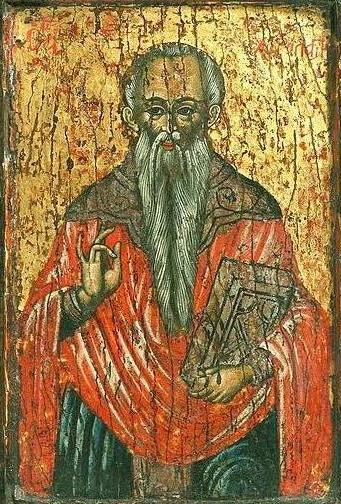“At that time the kingdom of heaven will be like ten virgins who took their lamps and went out to meet the bridegroom. Five of them were foolish and five were wise. The foolish ones took their lamps but did not take any oil with them. The wise ones, however, took oil in jars along with their lamps. The bridegroom was a long time in coming, and they all became drowsy and fell asleep. “At midnight the cry rang out: ‘Here’s the bridegroom! Come out to meet him!’ “Then all the virgins woke up and trimmed their lamps. The foolish ones said to the wise, ‘Give us some of your oil; our lamps are going out.’ “‘No,’ they replied, ‘there may not be enough for both us and you. Instead, go to those who sell oil and buy some for yourselves.’ “But while they were on their way to buy the oil, the bridegroom arrived. The virgins who were ready went in with him to the wedding banquet. And the door was shut. “Later the others also came. ‘Lord, Lord,’ they said, ‘open the door for us!’ “But he replied, ‘Truly I tell you, I don’t know you.’ “Therefore keep watch, because you do not know the day or the hour.
Matthew 25: 1-13 (Gospel from Orthros on December 4)
On December 4, we celebrate the Feastdays of St. Barbara and St. John of Damascus. Saint Barbara lived in the 3rd century, the daughter of a very controlling father who kept her essentially locked away from the world. Secretly she became a Christian. Her father constructed a tower for her to live in which had two windows. She had a third window put in, in honor of the Holy Trinity, while her father was out of town. When he came back and demanded to know why there were three windows, she confessed her faith in Christ. For this he had her tortured and imprisoned. Ultimately, her own father beheaded her, after which he was struck by lightning and died.
Saint John of Damascus, also known as St. John Damascene, was born in the late seventh century and lived until the year 749. He was a priest-monk. His contribution to Orthodoxy was that he was a composer of hymns. In fact, a good percentage of the hymns in our church still being sung today were composed by him, especially the hymns of the funeral and memorial services.
Because the readings for today are identical with those read on July 26, the feast of St. Paraskeve, and on November 25, the feast of St. Katherine, I decided instead to focus on the Gospel read during the Orthros on December 4, rather than the one read at the Divine Liturgy. This passage from Matthew 25: 1-13, is read at the sacrament of Holy Unction, at the Pre-Sanctified Liturgy during Lent, and today. So, many of us never hear it in church and for those who don’t read the Bible, perhaps we have never heard it.
I used to think that the wise maidens were also mean maidens, as they refused to share their oil with the foolish maidens. You’d think sharing a little bit of their oil wouldn’t have put them out, especially since the bridegroom had arrived. All would need to keep their lamps lit for only a short time. As I have come to understand the deeper meaning of this parable, I have come to realize that the oil represents the Christian faith. We can tell others about our faith, but we can’t take our faith and cut it in pieces and share it. Each person must develop their own faith.
The Bridegroom, of course, is Christ. The wedding feast of the Kingdom of Heaven. The wait for the Bridegroom represents our lives and how we pass them. The call of the Bridegroom represents the end of our lives. And of course, the lesson from the Parable is that we do not know the day or the hour when our lives will end, when the Bridegroom will come for us. If we are growing in our faith, then we can sleep and not worry whether there will be enough when the Bridegroom comes. If we do not have enough faith, we are indeed foolish, like the five foolish maidens, because the cry will come, and we will not be ready, and then will be shut out from the feast.
The reason this parable is read during the Orthros on the feast of St. Barbara is that she died both as a virgin (this parable is sometimes called the Parable of the Ten Virgins), but more importantly, she died at a very young age. Most people expect to live a long time. The average lifespan in our country is somewhere around 80. So we don’t think when we are in our 20s, or 40s, or 50s that the call of the Bridegroom is going to happen any time soon. There is the temptation to become complacent, like the five foolish maidens, and think we can find oil for our lamps “later on.” The lesson from this parable is that we need to be growing in our faith constantly, so that when the call comes, at an hour we don’t expect (plenty of people die in their 20s, 40s, 50s, etc.) that we are ready, with a heart that is filled with faith, to enter into the bridal feast with the Bridegroom, in other words, to be with Christ in the Kingdom of heaven.
Let us honor the all-virtuous Saint Barbara; for she broke the snares of the enemy, and she escaped from them like a bird, with the Cross as her help and shield. (Apolytkion of St. Barbara, Trans. By Fr. Seraphim Dedes)
No matter how busy you get this holiday season, or in any season or on any day, don’t forget the most needful thing, to keep the lamp of your Christian faith burning brightly at all times!
